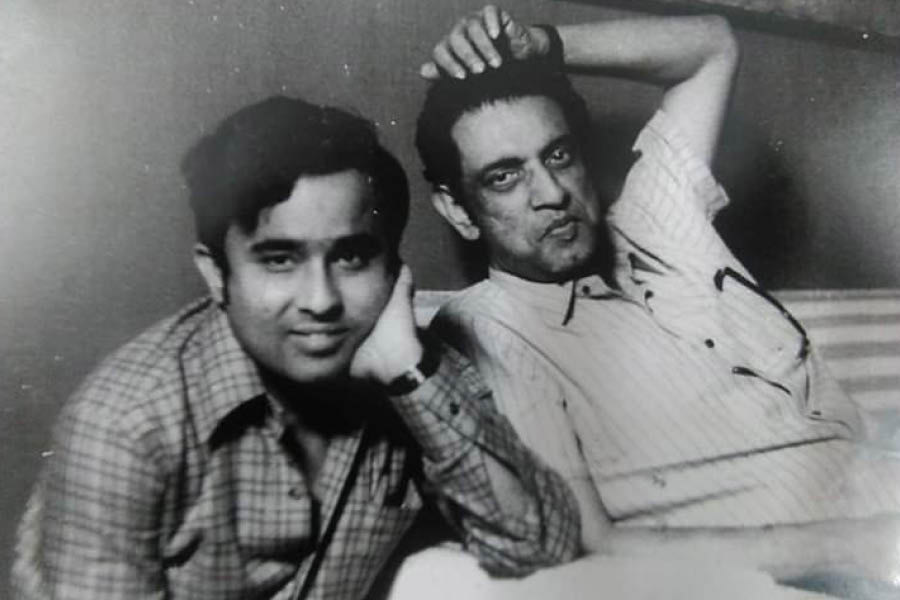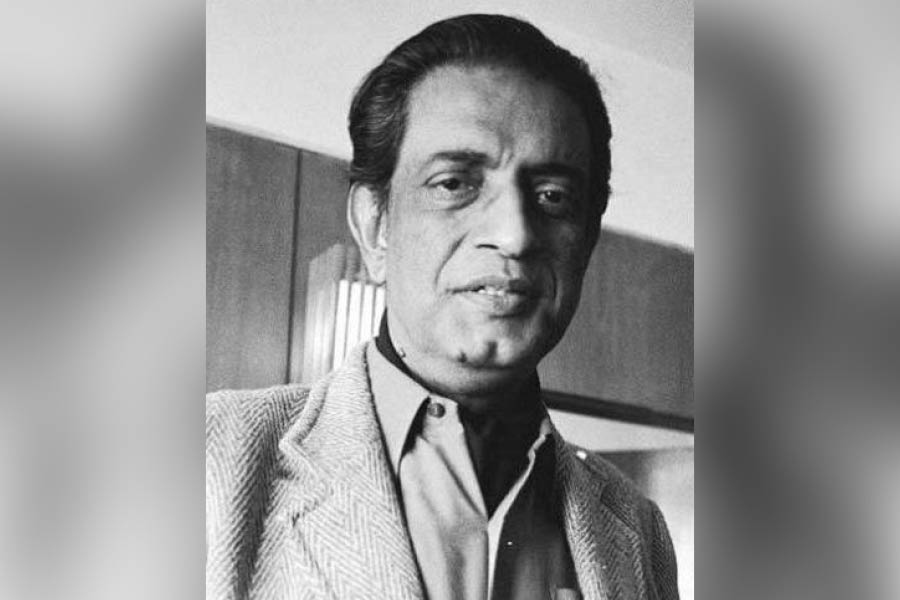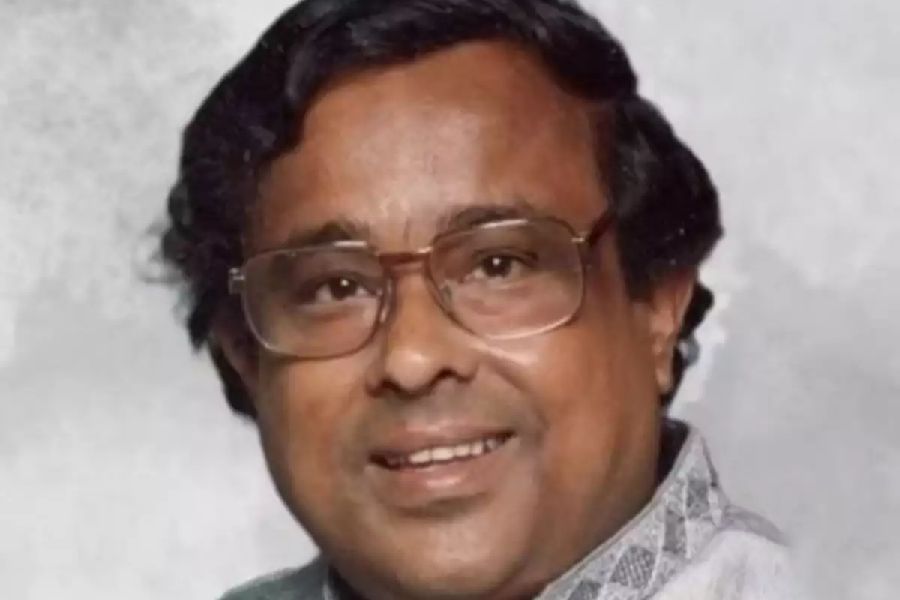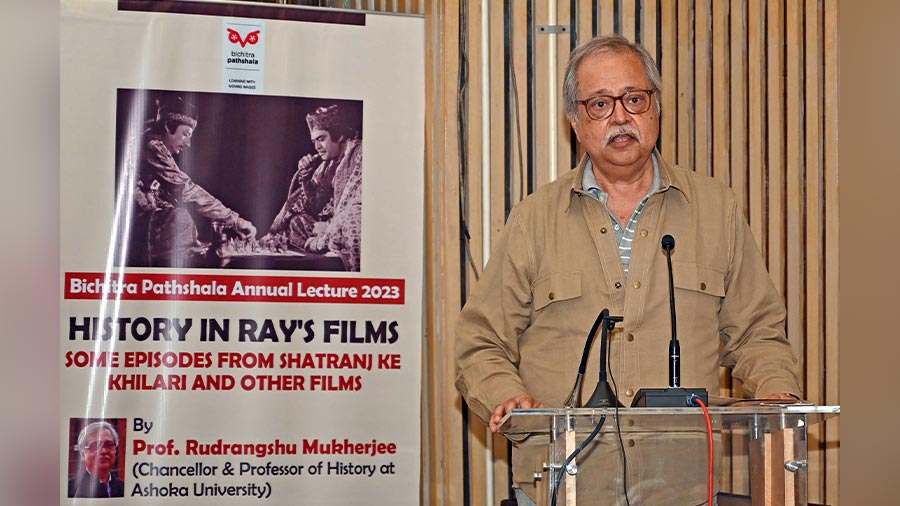Dekho re nayan mele, jagater bahaar…
Diner aloy kate ondhokar.
The 73-year-old singer sang the first few lines of the song from Goopy Gyne Bagha Byne, giving me goosebumps. I was listening to Anup Ghosal, the voice of Goopy in Satyajit Ray’s timeless classic, hum the song sitting right in front of him in his drawing room. It seemed like an impossible dream come true. But the moment had not come easily. Even now, when I look back after more than five years, I thank the stubborn determination of five 20-somethings and, of course, the quiet help of the singer’s wife, for the opportunity of a lifetime.
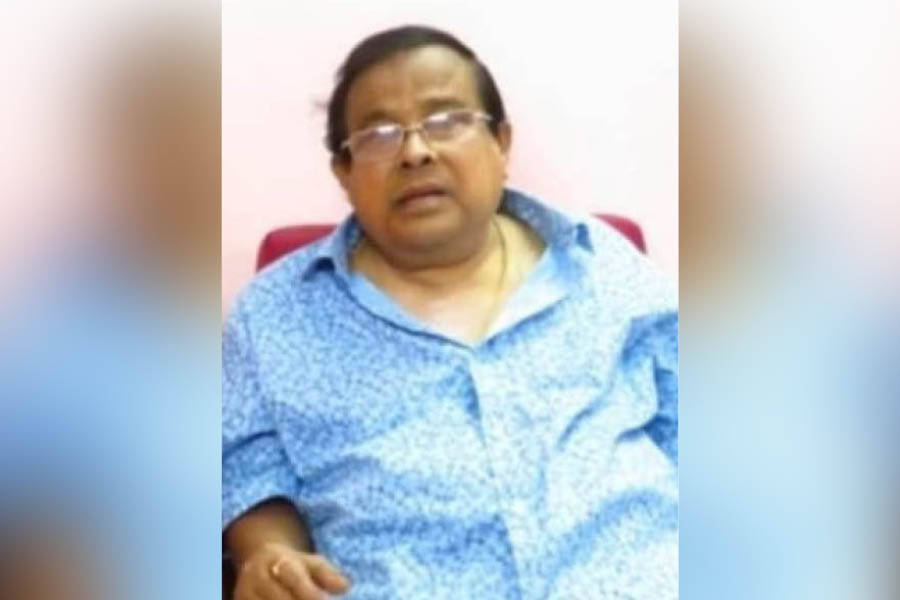
Anup Ghosal during the interview in June 2018 Jaismita Alexander
I was then studying master’s in mass communication and journalism and one summer our batch was assigned projects in documentary filmmaking. The professors split us up into groups of five and our group was asked to work on Satyajit Ray.
Having grown up in a household of movie buffs — both my grandmother and my mother were ardent admirers of Ray, I was more than happy with my topic till it came to actually working on the documentary. We tried to get in touch with several experts on Ray but in vain. It is then that someone suggested we contact Anup Ghosal, who worked closely with Ray. The idea seemed exciting to say the least.
Goopy Gyne Bagha Byne was the first Bengali feature film I had ever watched on a television with a wooden shutter that would part sideways to reveal the screen. I remember the afternoons when I would listen to my grandmother narrating the adventures of Goopy and Bagha in a room with curtains drawn to keep the sun away. I still remember my mother humming lines from Dekho re nayan mele or Aaha ki ananda as she went about her daily chores.
We managed to procure the veteran singer’s address and, on a scorching June afternoon in the summer of 2018, three of us landed up at the gate of the building on Gariahat Road where he lived. The guard let us enter after some persuasion and flashing of college ID cards. When we reached Ghosal's flat and rang the bell, his wife opened the door. We told her why we were there and she asked us to wait while she went inside, only to return a few minutes later with the disappointing news that Ghosal had refused to meet us. It had been a while since he had stopped appearing for interviews, she explained.
Not ones to give up, we requested for just one chance to speak to him. The singer’s wife perhaps took pity on us and gave us a landline number, asking us to call the next day. In the meantime, she would try to convince him.
The next day when we called, Ghosal’s wife asked us to stop by at noon but warned us that she couldn’t promise anything. We landed up at the house, armed with cameras and lapel, at noon. This time, we were let into the modest living room. The three of us waited for a while before Anup Ghosal stepped out. He was wearing a light blue shirt.
Ghosal plonked himself on a chair and addressed us, “What do you want to know? What can I tell you?” We told him that we wanted to know about Ray as a music director. “Why don’t you ask the others?” came his reply. It took us a while to convince him but he finally agreed to talk and the cameras rolled. From a distance, his wife smiled at us and disappeared inside.
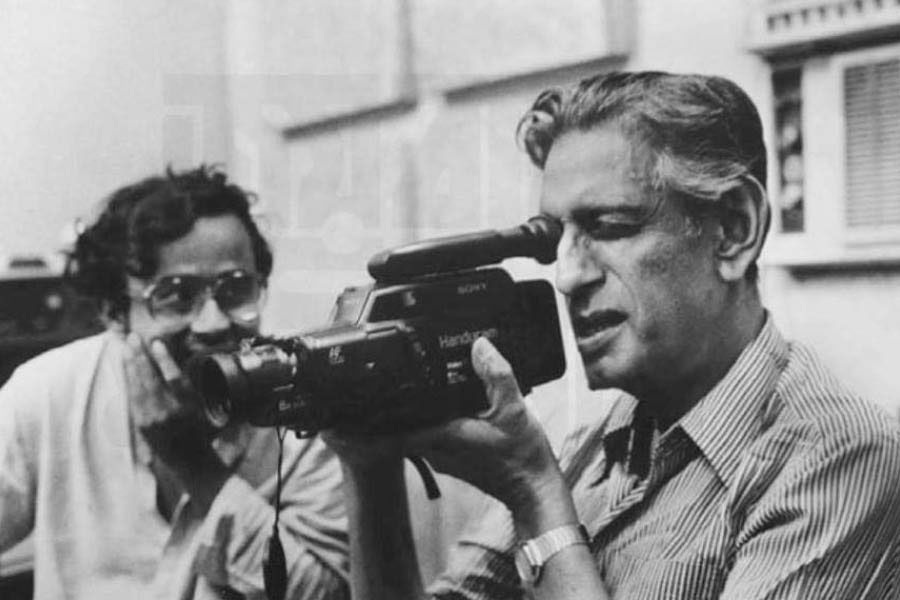
Anup Ghosal with Satyajit Ray in an undated photograph anup.ghosal.503 / Facebook
Ghosal belonged to a family of musicians and had been groomed from the age of four by his mother Lavanya. He was only 19 when Satyajit Ray recorded him for Goopy Gyne Bagha Byne. It was Bijoya Ray who had suggested Ghosal after the director couldn’t get dates for Kishore Kumar, his original choice as actor Tapen Chatterjee’s voice.
According to Ghosal, Ray closely worked with him and often discussed his passion for music. “I was pretty young during the first movie [Goopy Gyne Bagha Byne] and Satyajit Ray groomed me. Once he told me that he used to spend his pocket money to buy records of western music. He learnt about music by listening to various western artists. He used to say that his love for music also drew him towards filmmaking. He would encourage me by saying that one has to love something they do to be able to do it with all their heart,” Ghosal said.
When Goopy Gyne Bagha Byne released in 1969, songs like Dekho re nayan mele, Bhooter raja dilo bor, Maharaja! Tomare selam, O mantri moshai, Ore baba dekho cheye became instant hits.
Ghosal felt himself fortunate having worked with the maestro at a young age. “Working with Satyajit Ray will always be my greatest achievement. He was a filmmaker with vast knowledge. And his knowledge of music helped him compose background scores that helped in narration. The stories came alive with his music. Time and again he proved how versatile he was,” the singer said.
When Hirak Rajar Deshe was made in 1980, Ghosal was called to lend his voice for Goopy. He sang 11 of the 12 songs in the film and won the National Award. Soon after, Ghosal went to Mumbai to work with RD Burman. He sang the poignant Tujhse naraz nahin zindagi for Masoom but returned to Kolkata to sing for Ray’s documentary on Sukumar Ray in 1987.
Speaking about the songs he sang for Ray, Ghosal hummed Maharaja! Tomare selam. “If you listen to the song you will realise how significant the lyrics were after the Liberation War in Bangladesh. He identified the sentiments and emotions of his audience. His roots were from Mymensingh in Bangladesh, so he could highlight the emotions very well through music. His music in his films was never unreasonable. It had depth, emotions, feelings.”
“These songs can never be forgotten. Till humanity exists, till people value music, these songs will be etched in history. So will Ray, he is one name that has turned immortal,” summed up Ghosal, humming Dekho re nayan mele.
Memories of that sultry afternoon remain fresh in my mind, evergreen as Ray’s films. The singer passed away on December 15, 2023.
